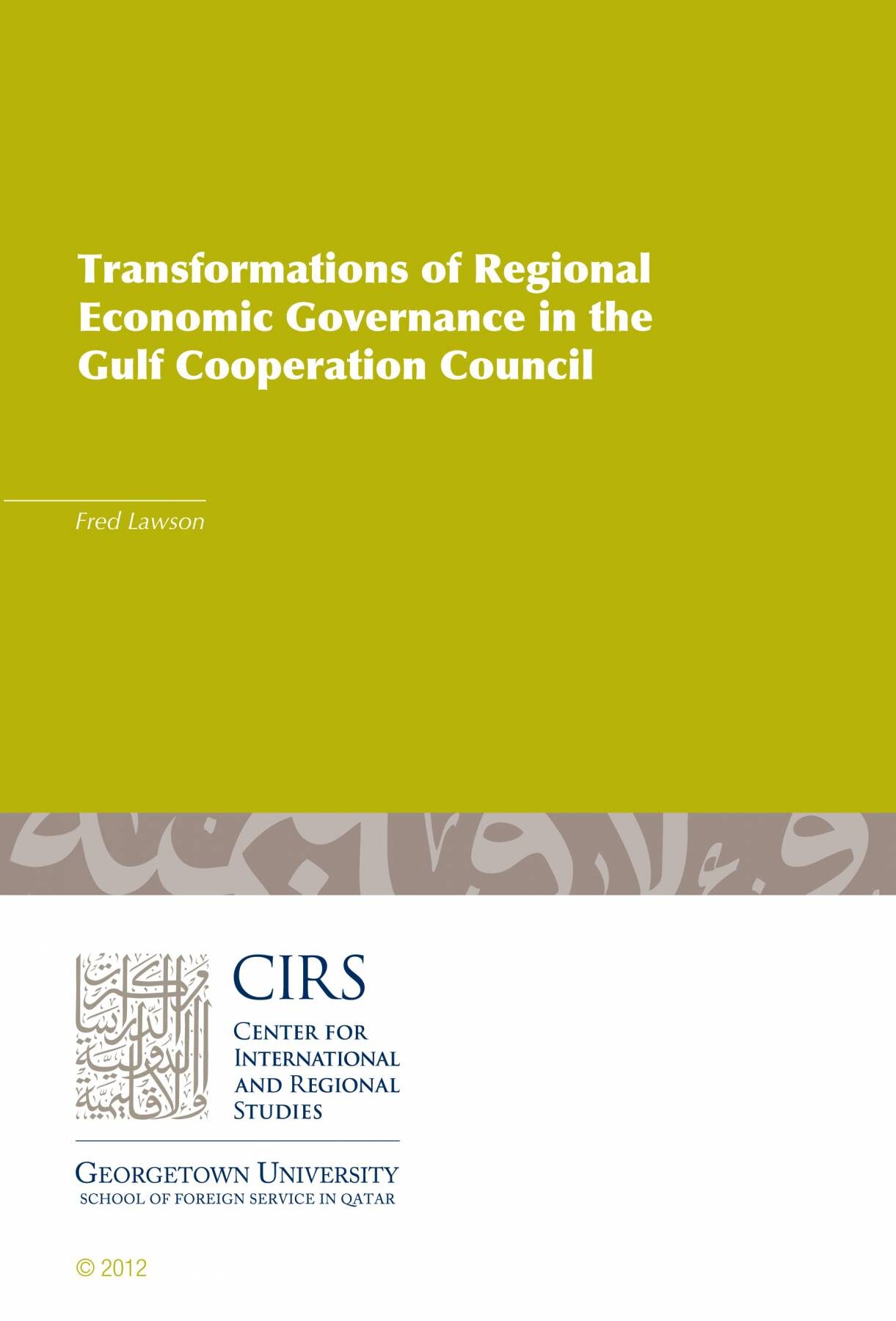Transformations of Regional Economic Governance in the Gulf Cooperation Council

To cite this publication: Fred H. Lawson, “Transformations of Regional Economic Governance in the Gulf Cooperation Council,” CIRS Occasional Paper no. 10 (Doha, Qatar: Center for International and Regional Studies, 2012).
Most studies of regionalism in the Middle East fail to distinguish among divergent types of regional formations, and make little effort to chart the developmental trajectory that regionalist projects display over time. This paper lays out a typology that can be used to elucidate crucial differences across regional formations in the contemporary Arab world, and also to highlight significant changes in the kind and level of governance that take place in any particular regionalist experiment. The utility of the framework is demonstrated through an analysis of the Gulf Cooperation Council (GCC). This regional formation has undergone two major transformations since it took shape in 1981, and at the present time exhibits a substantially different form of economic regionalism from the one it boasted three decades ago. Four alternative explanations for shifts from one form of GCC regionalism to another are outlined as an invitation to further investigation.